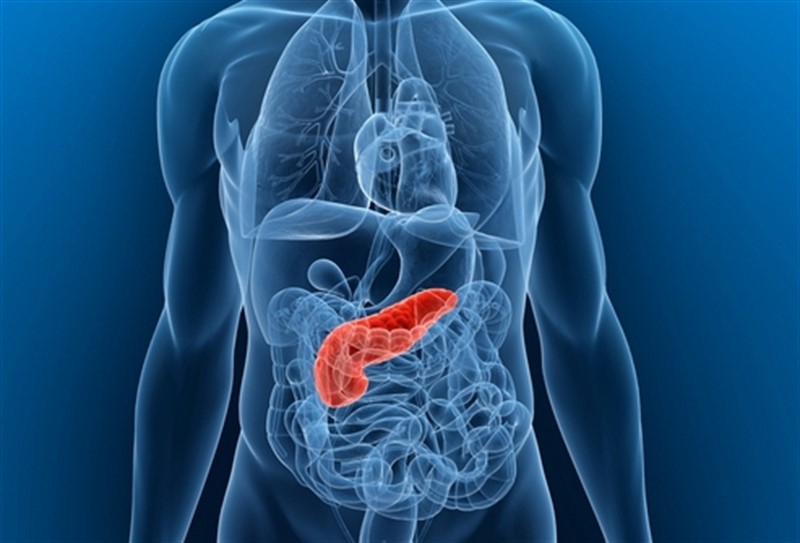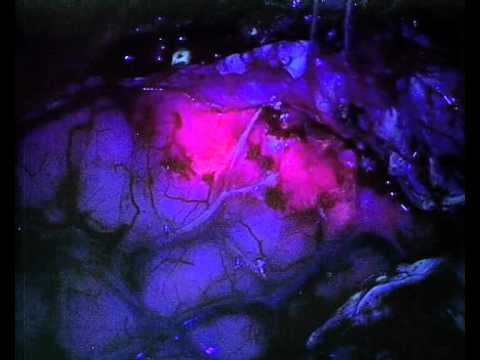Updated Pancreatic Cancer Data Presented at International Cancer Conference
Melbourne, January 2014 – A leading breast cancer drug, ABRAXANE® (nanoparticle albumin-bound paclitaxel), has been shown to extend overall survival (OS) for patients with metastatic pancreatic cancer when used in combination with current standard of care, gemcitabine, with some patients surviving longer than three years.1
The updated OS data from the pivotal Phase III Metastatic Pancreatic Adenocarcinoma Clinical Trial (MPACT)1-2 of ABRAXANE in combination with gemcitabine, was presented at the recent American Society of Clinical Oncology (ASCO) Gastrointestinal (GI) Conference in San Francisco by Australian Oncologist, Professor David Goldstein.
Professor Goldstein, who is based at the Prince of Wales Hospital in New South Wales, said that the data was “extremely encouraging” and paved the way for ABRAXANE to be used as a first-line therapy in the treatment of pancreatic cancer.
“Importantly, this large multinational trial in metastatic pancreatic cancer has demonstrated important three year survival rates, with 4% of patients in the ABRAXANE plus gemcitabine arm alive after three years, compared to none in the gemcitabine alone arm, and a near 30% improvement in survival outcomes,” he said.
“This cancer is the fourth most common cancer in Australia for both men and women3 and typically patients diagnosed with metastatic pancreatic cancer have a median life expectancy of approximately three to six months. These patients have very limited treatment options as there have been no new medications approved for metastatic pancreatic cancer in nearly seven years.
Data from this important study shows that ABRAXANE when used in conjunction with standard of care gemcitabine can substantially improve OS, with predictable and manageable side effects.”
The MPACT study was conducted at a number of sites internationally, including 20 sites in Australia, and involved 861 patients, of which 120 were Australian.
The median survival benefit in the updated analysis was extended in the ABRAXANE + gemcitabine arm with a 2.1 month OS improvement compared to gemcitabine alone (OS; median 8.7 months vs 6.6 months; HR=0.72; p<0.0001).1 This compares favourably with the 1.8 months improvement previously reported in the New England Journal of Medicine (OS; median 8.5 months vs 6.7 months; HR=0.72; p<0.00001).2
The Chief Executive Officer of Australian biopharmaceutical company, Specialised Therapeutics Australia (STA), Mr Carlo Montagner, said ABRAXANE is currently approved in the United States and Europe as a first-line therapy in combination with gemcitabine for patients with metastatic pancreatic cancer.
He said a submission to the Therapeutic Goods Administration (TGA) for the regulatory approval of ABRAXANE (in combination with gemcitabine) for first-line treatment of locally advanced unresectable or metastatic adenocarcinoma of the pancreas was made in 2013. An application for a Pharmaceutical Benefits Scheme (PBS) listing for this indication has also been submitted with the Pharmaceutical Benefits Advisory Committee (PBAC) and will be reviewed at the March 2014 meeting.
Mr Montagner commented: “We are extremely pleased with these results presented at the ASCO GI conference and look forward to a TGA approval for ABRAXANE and a subsequent PBS listing for Australian patients with this difficult to treat cancer.”
ABRAXANE is currently TGA approved for the treatment of metastatic breast cancer and first-line Non Small Cell Lung Cancer (NSCLC).4
About the MPACT Study2
The MPACT study was a Celgene-sponsored, open-label, randomised, international study of 861 patients with metastatic pancreatic cancer. Patients were randomised to receive either ABRAXANE plus gemcitabine (125 mg/m2 followed by 1000 mg/m2 gemcitabine for 3 weeks followed by a week of rest) or gemcitabine alone (1000 mg/m2 administered weekly for 7 weeks followed by a week of rest followed by cycles of weekly administration for 3 weeks followed by one week of rest).
The primary endpoint for the study was overall survival. Secondary endpoints were progression-free survival and overall response rate determined by independent radiological review. Other endpoints included progression-free survival and overall response rate determined by investigator, and the safety and tolerability of this combination in this patient population.
About Advanced Pancreatic Cancer
Advanced pancreatic cancer is a difficult-to-treat cancer with the lowest survival rates among all cancer types. Across all patients with pancreatic cancer, relative 5-year survival is approximately 5% and is less than 2% for those with advanced disease.3 There are two main types of pancreatic cancer – adenocarcinomas, which account for approximately 90% of all pancreatic cancer, and neuroendocrine tumours. Pancreatic cancer is relatively uncommon with new cases accounting for only 2.1% of all newly diagnosed cancers. However, pancreatic cancer is the fourth most common cause of cancer death for men and women in Australia, and the ninth most commonly diagnosed cancer in Australia.4
About ABRAXANE®
ABRAXANE is a solvent-free, nanoparticle chemotherapy treatment option approved for the treatment of metastatic breast cancer and NSCLC.4
ABRAXANE is indicated for the treatment of metastatic carcinoma of the breast after failure of anthracycline therapy. ABRAXANE, in combination with carboplatin, is indicated for the first-line treatment of NSCLC in patients who are not candidates for potentially curative surgery and/or radiation.4
In Australia, ABRAXANE is currently listed on the PBS for the treatment of metastatic breast cancer and HER2 positive breast cancer in combination with trastuzumab. ABRAXANE is not listed on the PBS for the indication of NSCLC.
ABRAXANE is approved for metastatic breast cancer in over 40 countries including the U.S., Canada, European Union, Japan and China, and more than 180,000 cancer patients have received ABRAXANE therapy in the past five years.
ABRAXANE is currently in various stages of investigation for the treatment of the following cancers: metastatic melanoma, adjuvant pancreatic cancer, bladder cancer, ovarian cancer, and expanded applications for breast cancer.
Developed using the proprietary nabTM technology platform, ABRAXANE is a nanoparticle protein-bound chemotherapy agent. ABRAXANE combines paclitaxel with albumin, a naturally-occurring human protein, to deliver the drug and eliminates the need for solvents in the administration process. Nanoparticle technology allows ABRAXANE to deliver a 49% higher dose compared to regular solvent-based paclitaxel without compromising safety and tolerability.4-5
Contraindications and Side Effects4:
Like all medications, ABRAXANE may cause side effects.
ABRAXANE should not be used in patients who have baseline neutrophil counts of <1.5 x 109 /L.
Patients who have exhibited hypersensitivity reactions to ABRAXANE or human albumin should not be treated with ABRAXANE.
ABRAXANE is contraindicated during pregnancy and lactation.
Most common side effects (≥1/10) caused by ABRAXANE include; neutropenia, anaemia, leucopenia, thrombocytopenia, lymphophenia, anorexia, peripheral neuropathy, hypoaesthesia, paraethesia, nausea, diarrhoea, vomiting, constipation, stomatitis, alopecia, rash, arthralgia, myalgia, fatigue, asthenia, pyrexia. This is not a full list of all the side effects.
Before prescribing or for further information regarding ABRAXANE and potential side effects, physicians should review the ABRAXANE Product Information at www.specialisedtherapeutics.com.au
Patients should consult their oncologist or the ABRAXANE Consumer Medicine Information available at www.specialisedtherapeutics.com.au
ABRAXANE® is a registered trademark of Celgene Corporation.
ABRAXANE® is under license from Celgene Corporation and distributed by STA in Australia and New Zealand.
About Specialised Therapeutics Australia Pty Ltd
Specialised Therapeutics Australia Pty Ltd (STA) is a biopharmaceutical company dedicated to working with leading pharmaceutical companies worldwide to provide acute care therapies for high unmet medical needs to people living in Australia and New Zealand. The STA therapeutic portfolio and pipeline at present encompasses oncology and infectious diseases. STA also has interests in the therapeutic areas of respiratory, dermatology, endocrinology and central nervous system (CNS). Additional information can be found at www.specialisedtherapeutics.com.au
- Study shows ABRAXANE plus gemcitabine combination therapy further extends overall survival benefit
- First Phase III trial in metastatic pancreatic cancer to report three year survival rates1
- New standard of care for patients with metastatic pancreatic cancer
References:
- Goldstein D et al. Oral Abstract # 178. Updated survival from a randomized phase III trial (MPACT) of nab-Paclitaxel plus gemcitabine versus gemcitabine alone for patients (pts) with metastatic adenocarcinoma of the pancreas. ASCO GI 2014.
- Von Hoff DD et al. Increased Survival in Pancreatic Cancer with nab-Paclitaxel plus Gemcitabine. N Engl J Med 2013; 369(18):1691-703.
- Cancer in Australia. An Overview 2012. Australian Institute of Health and Welfare (AIHW)
- ABRAXANE Product Information
- Gradishar WJ et al. J Clinical Oncology 2005;23:7794-7803




